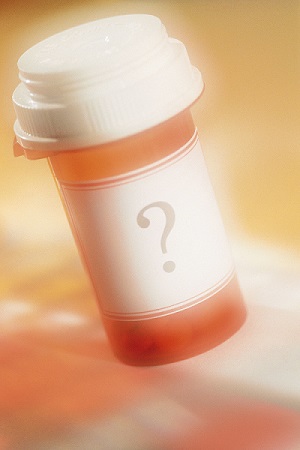One of the hardest barriers to break through when confronting alcoholism is that of denial. Hollywood stereotypes alcoholics as bums with no home, no job and no family. Who would want to identify themselves as a person worthy of ridicule or pity? Very few and it may be what keeps so many from seeking help.
Universal Negative Effects
 The truth is that alcoholism affects people in every social, educational and professional sphere. This is a non-biased addiction. Finding the courage to admit the problem seems to be one of the greatest obstacles to turning things around. Alcoholics Anonymous meetings confront this hurdle head-on by requiring participants to stand before a group and name their problem – alcoholism. “I am an alcoholic” is a tough admission, but it represents the death of denial.
The truth is that alcoholism affects people in every social, educational and professional sphere. This is a non-biased addiction. Finding the courage to admit the problem seems to be one of the greatest obstacles to turning things around. Alcoholics Anonymous meetings confront this hurdle head-on by requiring participants to stand before a group and name their problem – alcoholism. “I am an alcoholic” is a tough admission, but it represents the death of denial.
The title “alcoholic” is one no one wants to wear and people will go to great lengths to avoid accepting the label. The alcoholic is a person who is not in complete control over his or her behavior. Those being ruled by alcohol may worry that they will sink in the eyes of others if they admit it, but that embarrassment pales in comparison to the joy of regaining control over one’s life.
Regain Control
The good news is that a person can regain control. The American Medical Association defines alcoholism as a medical and psychiatric disease. It goes on to say that alcoholism is considered a treatable disease. This is hope. Alcoholism is a beatable disease, it can be overcome. Life can be better.
A 2010 study found that more than 60 percent of people who recognize their problem with alcohol avoid getting help because of perceived stigma. Two-thirds of the participants in the study with serious drinking issues reported believing that alcoholics were stigmatized. They did not look for a way out of alcoholism because it would mean admitting they were alcoholics and that label carried too much baggage.
Courage in Recovery
The fact is that most likely those who might look skeptically at an admission of alcoholism are probably the very people who should be avoided. Those who care about the alcoholic will applaud the courage it takes to admit the problem rather than stigmatize him or her. As the person moves forward in recovery, it will matter less and less what others may think because the confidence that comes with being in control of life makes what other people think trifling by comparison. It is a terrible shame that health and well-being should ever be captive to misplaced perception.
08 Aug 2013
Americans Are Still Drinking Too Much, USDA Says
Binge drinking is generally thought of as part of the college scene. When heavy drinking is mentioned, images often relate to college campuses and partying on the weekend. It is a behavior associated with young adults breaking free of the strict rules enforced at home by their parents.
Read More
Maybe you’ve been feeling a little down lately, or maybe you’ve noticed that you are getting upset or angry or nervous too often. Your friends and family supported your decision to try therapy and you are finally giving it a shot. After being in therapy for a few weeks or so, it isn’t brand new any more. You have learned some coping skills, and the crisis that brought you to seek therapy in the first place is noticeably moving toward a resolution. Now that you’re in the “work” part of the process, how do you know when it is working? Is feeling better enough?
Absence of Symptoms
For most people who start a therapy program, getting rid of symptoms is probably the single most important thing they hope to get out of therapy: most people want to stop feeling unpleasant or uncomfortable feelings and they want to stop doing things that make them feel worse. Gaining control over emotions and behaviors often top the list of therapy goals.
Depending upon the specific details in your situation, gaining control may happen fairly quickly. Most people enter therapy bec
ause of a crisis, and any given crisis tends to flare up and then resolve. While it might seem like “hey, I went to therapy and things got better” the truth is that sometimes things just get better on their own with a little time.
It is normal to feel at least a little better fairly quickly after starting therapy, partly because it is a real relief to feel like you’ve stepped on the right path and that you’re doing something to get help
. Most people begin feel like their therapists are allies. Just telling your story and feeling like you’ve been heard can reduce feeling of anxiety and hopelessness.
Though in order to reduce or eliminate your symptoms on a more long-term basis you’ll need to work with your therapist over time to:
- Identify triggers
- Develop coping techniques for in-the-moment management
- Develop prevention strategies
Things Get Worse Before They Get Better
You might find that as you settle into the work of therapy—identifying your triggers and working on coping strategies—you end up feeling worse again. Why does this happen? One thing that therapy does for you is it helps you become more self-aware. You are likely to pay more attention to your thoughts, feelings, and behaviors, and to start wondering about connections between all three. Having time each week to focus on yourself, and having a therapist that pays attention to you tends to help you turn inward and be more self reflective.
So how does that make you feel worse? Well, before entering therapy, you had ways of making yourself feel better when you were feeling anxious or sad or out of sorts in any other way. Often these old coping behaviors (the ones you used before you entered therapy) were less than ideal—and in some cases they can be downright dysfunctional. Using food, sex, relationships, shopping or any other distracting behaviors to manage emotions is very common, and for a while, it seems to work.
Preventing Symptoms Before They Happen
You’ve heard the old story repeated in addiction treatment or self-help groups: you walk down a road and fall into a hole. The next time you walk down the road you are more careful, but you still get distracted at the last moment and fall. Over time you learn to walk more slowly down that road, to anticipate the hole and maybe even to walk around it. Eventually you can choose to walk down a different road.
Preventing symptoms of anxiety, depression, or even distractibility or irritability can happen by paying attention to your triggers and ultimately learning to make different choices to avoid putting yourself into situations that are likely to make you feel bad. Therapy can help you learn to think ahead and predict how certain behaviors will make you feel. Over time, you will be able to make choices based on these predictions, and ultimately feel better and better about yourself and your life. Life will keep handing you challenges and difficulties, but you’ll find yourself better and better equipped to manage them.
Therapy can be a wonderful and important part of getting healthy. It might not be comfortable every step of the way, but it is always worth the effort.
The prescription drug abuse epidemic is an ongoing battle. Community awareness endeavors encouraged moms and dads to be more aware of the prescription drugs in family cupboards and to secure or remove those drugs. There have been prescription drug turn-in days to help parents responsibly dispose of unused prescriptions. Federal agents have been successful in closing down local pill mills and prosecuting complicit pharmacies here in America. But that does not mean that the supply line for illicit prescription drugs has been shut down. Overseas Internet pharmacies are only too happy to take up the slack.
 A watchdog group called Digital Citizens Alliance engaged the help of a 15-year-old boy to document the ease with which kids can order prescription drugs from abroad. The group videotaped the young boy calling an overseas pharmacy and ordering the prescription painkiller Percocet without a doctor’s prescription. During a second recorded call, this time asking for Hydrocodone, the boy confessed his age and mentioned that he was using his parent’s credit card to pay for the drug. The person at the other end of the call ignored the boy’s age and the lack of doctor prescription and merely asked for more credit card information.
A watchdog group called Digital Citizens Alliance engaged the help of a 15-year-old boy to document the ease with which kids can order prescription drugs from abroad. The group videotaped the young boy calling an overseas pharmacy and ordering the prescription painkiller Percocet without a doctor’s prescription. During a second recorded call, this time asking for Hydrocodone, the boy confessed his age and mentioned that he was using his parent’s credit card to pay for the drug. The person at the other end of the call ignored the boy’s age and the lack of doctor prescription and merely asked for more credit card information.
The group tested the drugs received through phone ordering. In some cases, the drug was exactly what it claimed to be, but in other cases, it was not. Orders for codeine from Pakistan delivered via India proved to be the real deal, but another order for Hydrocodone proved false. This demonstrates several of the problems with online pharmacies. They are difficult to track down and not reliable in terms of drug authenticity.
A second group called LegitScript spent five years investigating online pharmacies for the president. That group says that 97 percent of Internet pharmacies are not on the up and up and only rarely ask for a doctor’s prescription. In most cases, all a buyer is required to do is to fill out an online form. And, if you don’t have mom or dad’s credit card, no problem; Western Union works just as well.
There are more than 40,000 of these kinds of pharmacies. They pop up and disappear quickly. They sell to anyone who can show them the money. These overseas drug vendors have created a never-ending battle for law enforcement who can’t possibly track down every one of them. Prosecution is also difficult since there is another government involved.
Teens may not be raiding the family medicine chest, but they have found another way to get illicit prescription drugs. Parents need to educate teens about another reality however. It is illegal to sell drugs without a prescription and it is illegal to purchase them without a prescription too.



